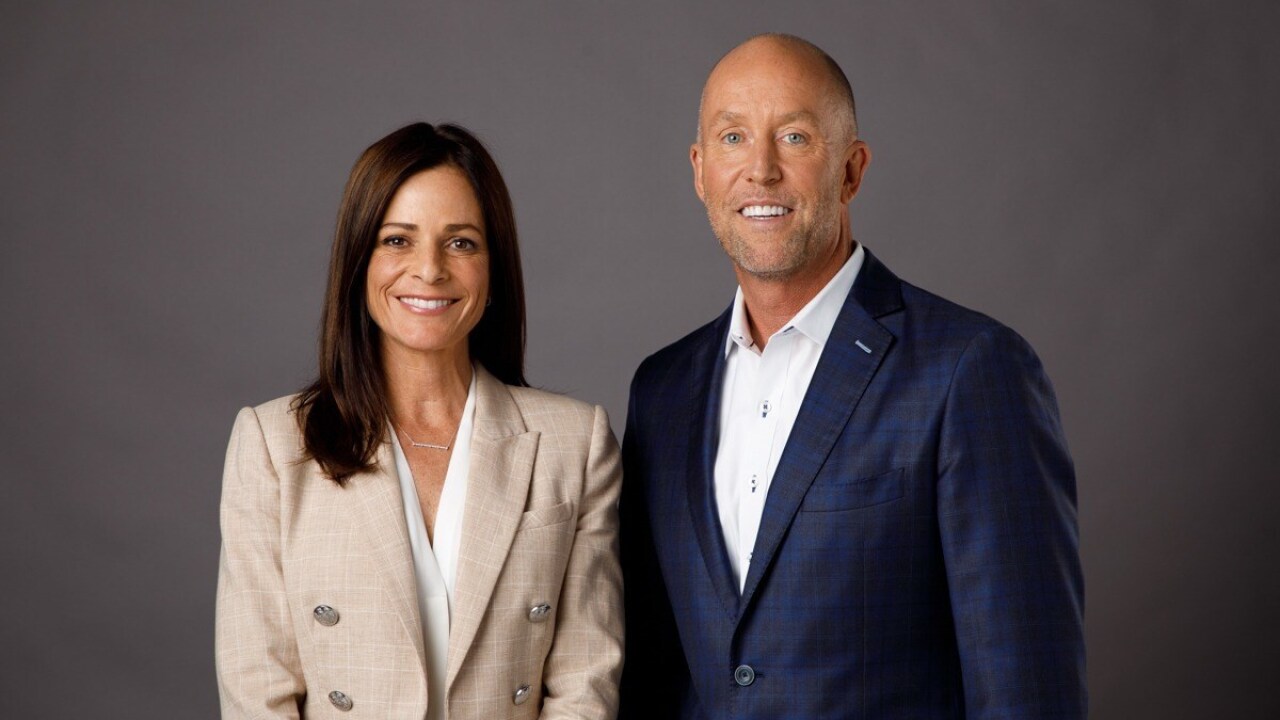The SEC's new chair, Jay Clayton, is set to take the reins at an agency where many senior staffers have departed following the election and a host of regulatory initiatives face an uncertain future.
Clayton is a veteran Wall Street attorney who has represented some of the largest firms that the commission regulates. The Senate voted to confirm his nomination on Tuesday.
Some business groups hailed Clayton's confirmation, signaling their hope that he will revive efforts to harmonize regulations governing the investment sector.
"Adopting a true, uniform fiduciary duty that protects investors and their access to affordable, objective financial advice must finally be given the serious attention it deserves," David Bellaire, executive vice president and general counsel at the Financial Services Institute, says in a statement.

Clayton comes to the SEC from the law firm Sullivan & Cromwell, where he represented clients such as Goldman Sachs and Barclays. At his
Clayton professed himself to be a supporter of strong oversight of the industry, arguing that a robust SEC is critical to maintaining investor confidence in the financial markets and vowing to take a "zero-tolerance" approach to policing bad actors.
Many observers are skeptical about Clayton forging ahead with major new rule-making initiatives, particularly at a time when Trump has moved swiftly to roll back a slew of regulations from the Obama administration. Already in Congress there is an
Ahead of Clayton's confirmation, acting SEC Chair Michael Piwowar directed the commission to halt certain regulations, and has
Lauren Tropeano is the chief people officer at Docebo. She brings over 20 years of Human Resources expertise to Docebo, having led diverse, multinational teams for several global, high growth tech organizations, including Skillshare, DraftKings, Cogito, Pivotal Software, and Dell/EMC.
The revamped platform will be available by late summer and feature several upgrades, including a greater ability to be discovered by artificial intelligence search results.
Graduate students at the University of Texas at Austin are using advanced analytics and AI to examine Wealthtender's client reviews — and create a new data metric for the industry.
FIRST STEPS
Clayton, a newcomer to government, is something of an unknown quantity, though in the short term, it seems likely that many staff-level initiatives will continue, says Brian Hamburger, president and CEO of MarketCounsel, a legal and compliance firm.
"On the macro level, the good thing and the bad thing about the SEC is that things don't change very quickly," Hamburger says.
Bill Singer, a veteran securities attorney, is anticipating a swifter change in the direction of the agency, predicting that Clayton will adopt a similarly deregulatory approach to other Trump appointees.
"What I am expecting is that the SEC will reflect the tone of the Trump administration," Singer says.
Hamburger agrees that significant new rule-makings that add new regulations to the financial services sector are unlikely, though he does expect Clayton's SEC to maintain a robust enforcement operation that will "have a meaningful impact on the industry."








